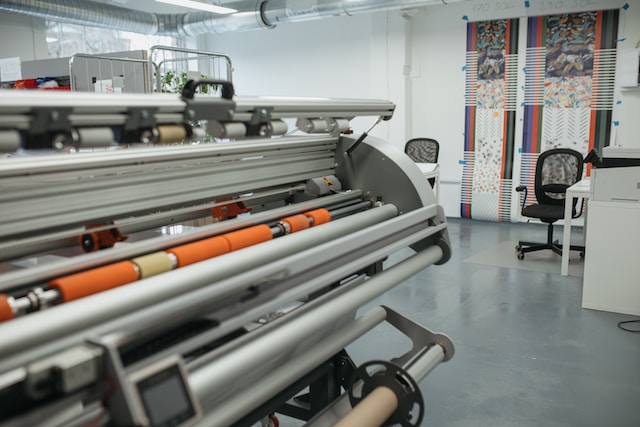In the ever-evolving landscape of technology, software development is at the forefront. Whether you’re a startup with a groundbreaking idea or an established enterprise seeking to upgrade your digital infrastructure, the choice of a software development company in the USA is a critical decision. With a plethora of options available, selecting the right partner can be a daunting task. This article serves as your guide to navigating this complex journey, ensuring you make an informed and successful choice.
Why Choosing the Right Software Development Company Matters
Hiring the right software development company is pivotal to the success of your project. Your choice can affect not only the quality and functionality of the software but also its long-term sustainability and cost-effectiveness. For example, consider Raleigh software development specialists who are experts in web apps but the hourly rate is lower than the ones in New York. But to keep it short, here are some reasons why this decision is so crucial:
Quality Assurance
A reputable software development company Lucrative studio has a track record of delivering high-quality software. They follow industry best practices, use the latest technologies, and have a team of skilled developers to ensure your project is executed with excellence.
On-Time Delivery
Timely delivery of the software is essential, especially in today’s fast-paced business environment. The right software development company will have a project management system in place to meet deadlines and milestones.
Cost Efficiency
Choosing the right partner helps you avoid cost overruns and unexpected expenses. They can accurately estimate the project’s budget and ensure efficient resource allocation.
Scalability
As your business grows, your software needs to scale with it. A reliable software development partner can design and build solutions that are adaptable and easily expandable.
Support and Maintenance
Post-launch support and maintenance are vital for keeping your software running smoothly. A reputable company will offer ongoing assistance and updates, ensuring your software remains up-to-date and secure.
How to Choose the Right Software Development Company
When it comes to custom software development, you’ll find no shortage of options in the worldwide market. Many companies in the vibrant tech scene of custom software development in New Orleans offer their expertise to help you bring your software project to life. However, selecting the right software development partner is a multi-faceted process, and it involves thorough research, careful evaluation, and consideration of various factors. One of the key decisions you’ll need to make is whether you prefer to work with a local company or are open to collaborating with a remote team. To guide you through this decision-making process, here’s a step-by-step guide:
1. Define Your Needs
Before you start searching for a software development company, have a clear understanding of your project’s requirements. What are your goals, budget, and timeline? Knowing these details will help you find a company that aligns with your specific needs.
2. Research and Shortlist
Begin your search by looking at companies based in the USA. You can use search engines, industry directories, and social networks to find potential partners. Create a shortlist of companies that seem promising.
3. Check Their Portfolio
Review the portfolio of each company on your shortlist. Look for projects similar to yours and assess the quality of their work. This will give you an idea of their capabilities and expertise.
4. Read Client Reviews and Testimonials
Client reviews and testimonials offer insights into a company’s reputation and customer satisfaction. Look for feedback from previous clients to gauge the company’s performance.
5. Verify Experience
Experience matters in software development. A company with a track record of successful projects is more likely to deliver quality results. Check how long they’ve been in business and their experience in your industry.
6. Assess Technology Expertise
Ensure that the software development company has expertise in the technologies required for your project. They should be proficient in programming languages, frameworks, and tools that align with your needs.
7. Evaluate Team Capabilities
A company is only as good as its team. Assess the qualifications, skills, and certifications of the developers who will work on your project. A strong team is essential for a successful outcome.
8. Communication and Collaboration
Effective communication is vital for a successful software development project. Evaluate how the company handles communication, including regular updates and responsiveness to your queries.
9. Project Management Approach
Inquire about the partner’s project management approach. They should have a clear process in place for project planning, execution, and monitoring. Agile and Scrum methodologies are popular choices for software development projects.
10. Budget and Pricing
Request detailed quotes from the companies on your shortlist. Compare the proposed budgets and pricing models to ensure they align with your financial capabilities.
11. Legal and Security Considerations
Check for legal considerations, such as intellectual property rights and confidentiality agreements. Security measures should also be a priority, especially if your project involves sensitive data.
12. Visit Their Office (if feasible)
If possible, visit the company’s office to get a sense of their working environment and culture. This can provide additional insights into their professionalism and commitment.
13. Ask for References
Request references from the software development company. Speaking with their past clients can provide valuable information about the company’s reliability and performance.
14. Evaluate the Proposal
Carefully review the proposals from the shortlisted companies. Pay attention to the scope of work, timelines, and deliverables. Ensure everything is clearly defined.
Conclusion
Selecting the right software development company in the USA is a critical decision that can significantly impact the success of your project. By following the steps outlined in this guide, you can make an informed choice that aligns with your project’s needs, budget, and goals. Remember that thorough research and evaluation are key to finding a partner who can turn your software development project into a resounding success.
Frequently Asked Questions
1. How do I determine the right software development company for my project?
Determining the right software development company starts with defining your project’s needs, budget, and timeline. Research and shortlist potential partners, evaluate their experience, portfolio, and expertise, and assess their team capabilities, communication, and project management approach. It’s essential to align the company’s capabilities with your specific project requirements.
2. Why is experience crucial when choosing a software development company?
Experience is crucial because it indicates the business’s ability to deliver high-quality work and handle complex projects. An experienced company is more likely to have encountered and solved various challenges, making them a reliable partner for your project.
3. What role does communication play in the software development process?
Effective communication is vital in software development to ensure that the project stays on track, meets its deadlines, and aligns with your expectations. Regular updates and responsiveness to your queries are key indicators of a company’s commitment to clear communication.
4. How can I assess the security measures of a software development company?
Assessing a company’s security measures involves checking its approach to data protection, handling sensitive information, and securing your project against potential threats. You should discuss security concerns and ensure the company has proper measures in place to safeguard your project.
5. What pricing models are common in the software development industry?
Common pricing models in the software development industry include fixed-price, time and materials, and dedicated team models. Each has its advantages and disadvantages, so it’s essential to choose the one that aligns with your project’s requirements and budget.







